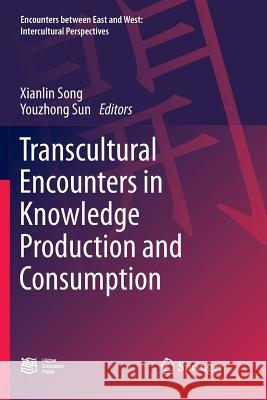Transcultural Encounters in Knowledge Production and Consumption » książka
topmenu
Transcultural Encounters in Knowledge Production and Consumption
ISBN-13: 9789811352669 / Angielski / Miękka / 2019 / 163 str.
Kategorie:
Kategorie BISAC:
Wydawca:
Springer
Seria wydawnicza:
Język:
Angielski
ISBN-13:
9789811352669
Rok wydania:
2019
Wydanie:
Softcover Repri
Ilość stron:
163
Waga:
0.29 kg
Wymiary:
23.5 x 15.49 x 1.02
Oprawa:
Miękka
Wolumenów:
01
Dodatkowe informacje:
Wydanie ilustrowane











